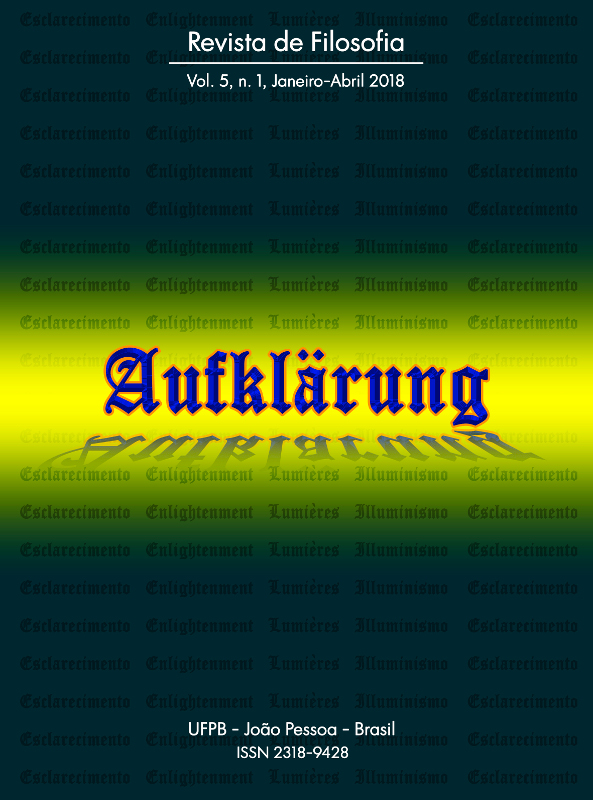Systemic theory, meritocracy and the depoliticization of institutions: thoughts on the normative route of contemporary liberal political theory – an essay
DOI:
https://doi.org/10.18012/arf.2016.38103Palavras-chave:
Western modernization, Political liberalism, Social systems, Meritocracy, Political praxisResumo
In this paper, we criticize the depoliticization of Western modernization by liberal political theories through the correlation between systemic institutional theory and meritocracy, which is based on the idea of strong individualism with regard to the understanding and the legitimation of social evolution, as well as the logical-technical constitution of social systems. Thus, according to liberal political theories, meritocracy defines social stratification and even systemic institutional evolution throughout time, due to the fact that it is the only political possibility from the viewpoint of a technical-logical understanding of social systems, which implies the delegitimation of an inclusive democratic political praxis concerning the structuring and evolution of such social systems. Our central argument is that a proper political comprehension of Western modernization needs to overcome both the technical-logical understanding of institutions and meritocracy as bases for the comprehension and legitimation of political praxis, institutional evolution, political reformism and social rights. The notions of political democracy and social justice, therefore, must be considered through the refusal of systemic theory and of strong individualism – both assumed by contemporary liberal political theories.Downloads
Referências
BOLTANSKI, Luc & CHIAPELLO, Ève. O novo espírito do capitalismo. São Paulo: Martins Fontes, 2009.
FRIEDMAN, Milton. Capitalismo e liberdade. Rio de Janeiro: Editora Artenova, 1985.
GIDDENS, Anthony. Para além da esquerda e da direita: o futuro da política radical. São Pau-lo: Editora da UNESP, 1996.
______. A terceira via: reflexões sobre o impasse da social-democracia. Rio de Janeiro: Record, 2000.
______. A terceira via e seus críticos. Rio de Janeiro: Record, 2001.
ESPING-ANDERSEN, Gosta. Social foundations of postindustrial economies. Oxford: Oxford University Press, 1999.
______. Why we need a new Welfare State. Oxford: Oxford University Press, 2003.
HABERMAS, Jürgen. Teoria do agir comunicativo (Vol. I): racionalidade da ação e racionaliza-ção social. São Paulo: Martins Fontes, 2012a.
______. Teoria do agir comunicativo (Vol. II): sobre a crítica da razão funcionalista. São Paulo: Martins Fontes, 2012b.
______. Direito e democracia (Vol. I): entre facticidade e validade. Rio de Janeiro: Tempo Bra-sileiro, 2003a.
______. Direito e democracia (Vol. II): entre facticidade e validade. Rio de Janeiro: Tempo Bra-sileiro, 2003b.
______. O discurso filosófico da modernidade: doze lições. São Paulo: Martins Fontes, 2002.
______. Ensayos políticos. Barcelona: Ediciones Península, 1997.
HAYEK, Friedrich August von. Law, legislation and liberty: a new statement of the liberal prin-ciples of justice and political economy (3 vols.). London/NewYork: Routledge, 2013.
______. Arrogância fatal: os erros do socialismo. Porto Alegre: Editora Ortiz, 1995.
______. Individualism and economic order. Chicago: The Chicago University Press, 1948.
______. “The meaning of the Welfare State”, p. 90-95. In: PIERSON, C.; CASTLES, F. G. (Eds.). The Welfare State reader. Cambridge: Polity Press, 2006.
______. O Caminho de servidão. Rio de Janeiro: Instituto Liberal, 1987.
HICKS, Alexander. Social democracy and welfare capitalism: a century of income security poli-tics. Ithaca; London: Cornell University Press, 1999.
KATZ, M. B. The undeserving poor: from the war on poverty to the war on welfare. New York: Phanteon Books, 1989.
MISES, Ludwig von. Ação humana: um tratado de economia. São Paulo: Instituto Ludwig von Mises, 2010.
NOZICK, Robert. Anarquia, Estado e utopia. Rio de Janeiro: Zahar, 1991.
PIKETTY, Thomas. O capital no século XXI. Rio de Janeiro: Intrínseca, 2014.
RAWLS, John. Uma teoria da justiça. São Paulo: Martins Fontes, 2000.
______. Justiça como equidade: uma reformulação. São Paulo: Martins Fontes, 2003.
WACQUANT, Loïc. As prisões da miséria. Rio de Janeiro: Zahar Editor, 2001.
Arquivos adicionais
Publicado
Como Citar
Edição
Seção
Licença
Copyright (c) 2018 Leno Francisco Danner, Agemir Bavaresco, Fernando Danner

Este trabalho está licenciado sob uma licença Creative Commons Attribution 4.0 International License.
Política de Direito Autoral para os itens publicados pela Revista:
1.Esta revista é regida por uma Licença da Creative Commons aplicada a revistas eletrônicas. Esta licença pode ser lida no link a seguir: Creative Commons Attribution 4.0 International (CC BY 4.0).
2.Consonante a essa politica, a revista declara que os autores são os detentores do copyright de seus artigos sem restrição, e podem depositar o pós-print de seus artigos em qualquer repositório ou site.
Política de Direito de Uso dos Metadados para informações contidas nos itens do repositório
1. Qualquer pessoa e/ou empresa pode acessar os metadados dos itens publicados gratuitamente e a qulquer tempo.
2.Os metadados podem ser usados sem licença prévia em qualquer meio, mesmo comercialmente, desde que seja oferecido um link para o OAI Identifier ou para o artigo que ele desceve, sob os termos da licença CC BY aplicada à revista.
Os autores que têm seus trabalhos publicados concordam que com todas as declarações e normas da Revista e assumem inteira responsabilidade pelas informações prestadas e ideias veiculadas em seus artigos, em conformidade com a Política de Boas Práticas da Revista.






































